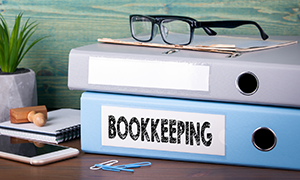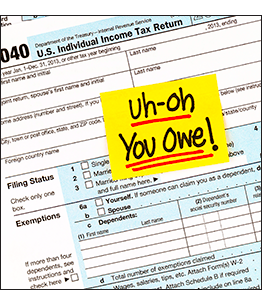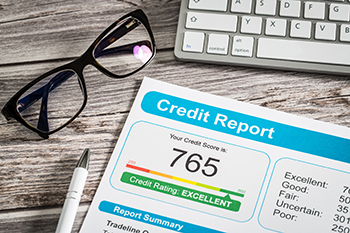 Home-based businesses can be financially rewarding and provide a certain amount of flexibility with your day-to-day schedule. Here are some tips to keep your business running at full steam.
Home-based businesses can be financially rewarding and provide a certain amount of flexibility with your day-to-day schedule. Here are some tips to keep your business running at full steam.
- Stay on top of accounts receivable. It’s easy to get caught up with fulfilling your business obligations while invoices you’ve sent out go unpaid. Agree to payment terms in advance with new customers and immediately – but politely – communicate with them as soon as they miss a payment deadline. Keep current with regular invoicing and collections.
- Keep your bookkeeping records up-to-date. You may not realize you have an unpaid invoice that’s several months old unless your bookkeeping is up-to-date. Keeping accurate books involves more than balancing your bank accounts once a month. In addition to your monitoring your bank accounts, also consistently look at your accounts receivable, accounts payable, any debts (credit card, car loans or other borrowings), and all money you invest in your business. Ask for help if you don’t have enough time to do the bookkeeping yourself, or if you need help properly setting up your bookkeeping software.
- Check on permit requirements. Depending on what type of home-based business you have, you may be required to obtain various permits, licenses or other registrations. If you have not already done so, check with your town or city for local requirements. The Small Business Administration is also a good source to research information on permits.
- Get insured. Obtain adequate insurance for the type of operation you’ll be running. Besides the insurance required for business activities, you might consider adding a rider to your homeowner’s policy for liability protection should an accident occur on your property.
- Stay on top of technology. While you may not need a top of the line computer, be sure that the technology equipment you use can handle the bandwidth of everything you’ll ask it to do, including video calls, software apps and data storage. Also consider scheduling a time for your internet provider to visit your home to make sure everything is in working order and your security protocols are top notch. Have a back-up plan in place for when a device breaks down, including where you’ll go to have it repaired.
- Cash in on tax breaks. Take advantage of the tax breaks available to home-based businesses, including deductions for supplies, equipment and vehicle expenses. You may even be able to deduct the cost of your home office, including a pro-rated amount of your real estate taxes and utilities, if certain conditions are met.
- Set aside money to pay your taxes. Ask for help to calculate how much of your incoming cash you should be setting aside to pay your federal, state and local taxes. Consider opening a separate bank account to transfer your tax money into.
 No one likes surprises from the IRS, but they do occasionally happen. Here are some examples of unpleasant tax situations you could find yourself in and what to do about them.
No one likes surprises from the IRS, but they do occasionally happen. Here are some examples of unpleasant tax situations you could find yourself in and what to do about them.
- An expected refund turns into a tax payment. Nothing may be more deflating than expecting to get a nice tax refund and instead being met with the reality that you actually owe the IRS more money.
What you can do: Run an estimated tax return and see if you may be in for a surprise. If so, adjust how much federal income tax is withheld from your paycheck for the balance of the year. Consult with your company’s human resources department to figure out how to make the necessary adjustments for the future. If you’re self-employed, examine if you need to increase your estimated tax payments due in January, April, June and September.
- Getting a letter from the IRS. Official tax forms such as W-2s and 1099s are mailed to both you and the IRS. If the figures on your income tax return do not match those in the hands of the IRS, you will get a letter from the IRS saying that you’re being audited. These audits are now done by mail and are commonly known as correspondence audits. The IRS assumes their figures are correct and will demand payment for the taxes you owe on the amount of income you omitted on your tax return.
What you can do: Assuming you already know you received all your 1099s and W-2s and confirmed their accuracy, verify the information in the IRS letter with your records. Believe it or not, the IRS sometimes makes mistakes! It is always best to ask for help in how to correspond and make your payments in a timely fashion, if they are justified.
- Getting a tax bill for an emergency retirement distribution. Due to the pandemic, you can withdraw money from retirement accounts in 2020 without getting a 10% early withdrawal penalty, but you’ll still have to pay income taxes on the amount withdrawn. If you don’t plan for this extra tax you will be surprised with an additional tax bill. And you may still get an underpayment penalty bill from the IRS because you did not withhold enough during the year. You may also still receive an early withdrawal penalty in error because the IRS is still scrambling to update their systems with all of this year’s tax relief changes.
What you can do: Set aside a percentage of your distribution for taxes. Your account administrator may withhold funds automatically for you when you request the withdrawal, so check your statements. Your review should be for both federal and any state tax obligations. If the withholding is not sufficient, consider sending in an estimated tax payment. And if you are charged a withdrawal penalty, ask for help to correspond with the IRS to get this charge reversed.
No one likes surprises when filing their taxes. With a little planning now, you can reduce the chance of having a surprise hit your tax return later.
You’re ready to take out a loan to buy a house, a car or get a credit card. You fill out the application and wait to hear back from your bank on its decision whether to loan you the money.
 And then you get the dreaded phone call. Your credit score wasn’t high enough to approve the loan! Was there anything you could have done to get a higher credit score?
And then you get the dreaded phone call. Your credit score wasn’t high enough to approve the loan! Was there anything you could have done to get a higher credit score?
Getting and maintaining a high credit score is just like playing a game. But just like any game, you first need to understand the rules so you can create a winning game plan. Here are the rules of the credit score game you need to understand so you can get the highest score possible.
- Rule 1 – Pay your bills on time (Comprises 35% of your credit score equation). Payment history is the most important component of your credit score and is pretty straightforward – it’s a record of whether or not you’ve paid your bills on time.
Action: Don’t be late paying your bills! A one-time late payment may not affect your score, but multiple late payments will drag down your score. Even better, understand what vendors report your payment history and which ones do not.
- Rule 2 – Refrain from maxing out your credit (30%). Just because you have a $10,000 credit limit doesn’t mean you should use it all. Using close to or all of your credit limit signals to lenders that you may be a high-risk borrower. Insurance companies also love to use high-limit spending as a reason to increase your home and auto insurance, so be forewarned!
Action: Don’t use more than 25% of your available revolving credit, and pay the outstanding credit card balance in full each month.
- Rule 3 – Build a long history of using credit responsibly (15%). Lenders want to see a track record that you can handle being entrusted with a credit limit. If you have old credit accounts that are still open and in good standing, that signals your trustworthiness, which is reflected in a higher credit score.
Action: When you open a credit account, keep it active for as long as possible. If you stop using an account, consider leaving that account open, but only if it will help your score and not hurt you in obtaining new credit.
- Rule 4 – Use multiple types of credit (10%). Lenders like to see you with both revolving debt (credit cards) and installment debt (car and house loans).
Action: If you have a low credit limit, request a limit increase. Many banks will honor the request, especially if you’ve had a history of making on-time payments. If you don’t have a history of using installment loans, consider making a small purchase (such as an appliance or electronic device) using an installment loan.
- Rule 5 – Avoid too many credit inquiries (10%). Applying for many loans or credit cards in a short period of time tells lenders you may be attempting to acquire more credit than you can handle.
Action: Apply for only one type of credit at a time. Multiple inquiries for the same type of credit, for example a mortgage loan, within a short period of time will only count as one inquiry.
You can improve your credit score by understanding these rules and putting them into practice.
 Maybe you’re behind on paying your bills because of circumstances outside of your control. Or perhaps there’s been an error in billing. Either way, these scenarios may lead to a run-in with a debt collector. Fortunately, there are strict rules in place that forbid any kind of collector harassment in the U.S. If you know your rights, you can deal with debt collection with minimal hassle. Here’s what to remember:
Maybe you’re behind on paying your bills because of circumstances outside of your control. Or perhaps there’s been an error in billing. Either way, these scenarios may lead to a run-in with a debt collector. Fortunately, there are strict rules in place that forbid any kind of collector harassment in the U.S. If you know your rights, you can deal with debt collection with minimal hassle. Here’s what to remember:
- You have a right to details — without harassment. When a debt collector calls, they must be transparent about who they are. They need to tell you: “This is an attempt to collect a debt, and any information obtained will be used for that purpose.”
In addition, debt collectors cannot use abusive language, or threaten you with fines or jail time. The most a debt collector can truthfully threaten you with is that failure to pay will harm your credit rating, or that they may sue you in a civil court to extract payment. - You don’t have to put up with 24/7 calls. Debt collectors may not contact you outside of “normal” hours, which are between 8 a.m. and 9 p.m. local time. They may try to call you at work, but they must stop if you tell them that you cannot receive calls there.
Keep in mind that debt collectors may not talk to anyone else about your debt (other than your attorney, if you have one). They may try contacting other people, such as relatives, neighbors or employers, but it must be solely for the purpose of trying to find out your phone number, address or where you work. - You can tell them to stop. Whether you dispute the debt or not, at any time you can send a “cease letter” to the collection agency telling them to stop making contact. You don’t need to provide a specific reason. They will have to stop contact after this point, though they may still decide to pursue legal options in civil court.
- You can dispute collection. If you believe the debt is in error in whole or in part, you can send a dispute letter to the collection agency within 30 days of first contact. Ask the collector for their mailing address and let them know you are filing a dispute. They will have to cease all collection activities until they send you legal documentation verifying the debt.
If a debt collection agency is not following these rules, report them. Start with your state’s attorney general office, and consider filing a complaint with the U.S. Federal Trade Commission and the Consumer Financial Protection Bureau, as well.
 A letter in the mailbox with the IRS as the return address is sure to raise your blood pressure. Here are some tips for handling the situation if this happens to you:
A letter in the mailbox with the IRS as the return address is sure to raise your blood pressure. Here are some tips for handling the situation if this happens to you:
- Stay calm. Try not to overreact to the correspondence. They are often in error. This is easier said than done, but remember the IRS sends out millions of notices each year. The vast majority of them correct simple oversights or common filing errors.
- Open the envelope. You would be surprised at how often people are so stressed by receiving a letter from the IRS that they cannot bear to open the envelope. If you fall into this category, try to remember that the first step in making the problem go away is to simply open the correspondence.
- Carefully review the letter. Understand exactly what the IRS thinks needs to be changed and determine whether or not you agree with its findings. Unfortunately, the IRS rarely sends correspondence to correct an oversight in your favor, but its assessment of your situation is often wrong.
- Respond timely. The correspondence should be very clear about what action the IRS believes you should take and within what timeframe. Delays in responses could generate penalties and additional interest payments.
- Get help. You are not alone. Getting assistance from someone who deals with this all the time makes going through the process much smoother.
- Correct the IRS error. Once the problem is understood, a clearly written response with copies of documentation will cure most of these IRS correspondence errors. Often the error is due to the inability of the IRS computers to conduct a simple reporting match. Pointing the information out on your tax return might be all it takes to solve the problem.
- Use certified mail. Any responses to the IRS should be sent via certified mail. This will provide proof of your timely correspondence. Lost mail can lead to delays, penalties and additional interest on your tax bill.
- Don’t assume it will go away. Until a definitive confirmation that the problem has been resolved is received, you need to assume the IRS still thinks you owe the money. If no correspondence confirming the correction is received, a written follow-up will be required.
Most everyone knows you need to budget, balance and save. However, here’s a list of the ten steps to ensure you walk on stable financial ground.
- Set a budget and stick to it – Make financial goals and then create a budget that supports those goals. Account for expenses on a monthly basis and set budget limits for dinner out and other forms of entertainment.
- Pay off all debt (except a home mortgage) – Make debt payments a part of your budget until paid off.
- Set aside money for future expenses – Plan in advance for both short- and long-term big expenses and create a line item for them in your monthly budget.
- Save for emergencies – Set aside funds each month to build a reserve of three months living expenses (eventually build up to six) to guard against job loss or unexpected expenses. Having these savings automatically deducted you’re your income makes it easier.
- Take advantage of available plans – Company-sponsored 401(k) plans and/or other retirement plans, 529 savings plans and education funds will help you financially later. A little put away today can mean a lot is available tomorrow.
- Spend only what you have – Limit uses of credit vehicles like credit cards and high interest cash advances. Pay off credit cards by due dates each month.
- Manage your financial life – Regularly manage and monitor your accounts and statements, including balancing your debit/checking account and investment accounts.
- Keep an eye on your credit score – Making timely payments is one of the best ways to maintain good credit for future lending. If used responsibly, automatic payment systems like online banking can be beneficial.
- Set up Identity Theft Protection on your financial accounts – Regularly change your online and mobile passwords, and safeguard your financial statements.
- Openly communicate with your spouse about your family’s financial position – Make sure you both agree on short- and long-term goals. Teach your children the power of saving and budgeting to put them on the path to a successful financial future.